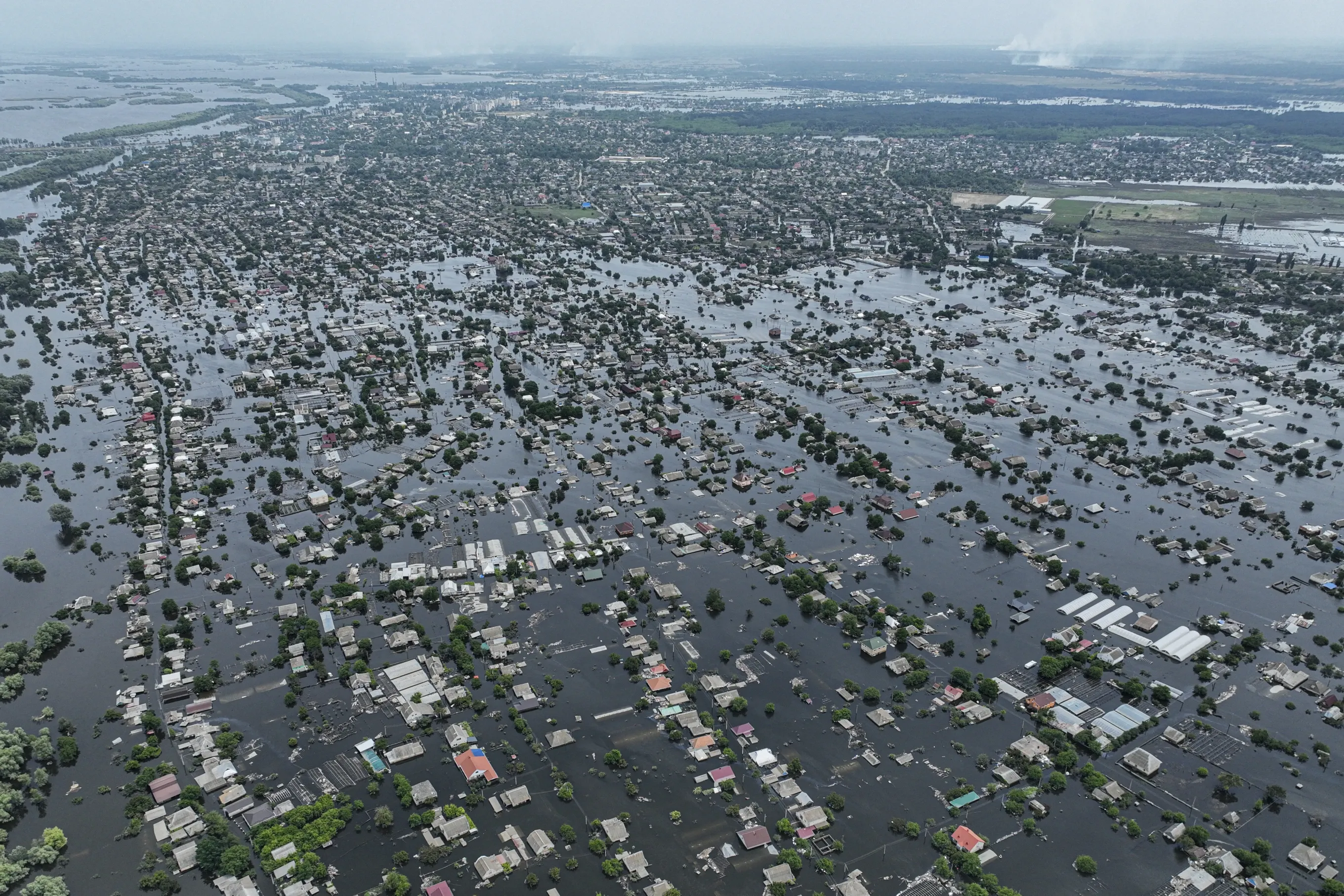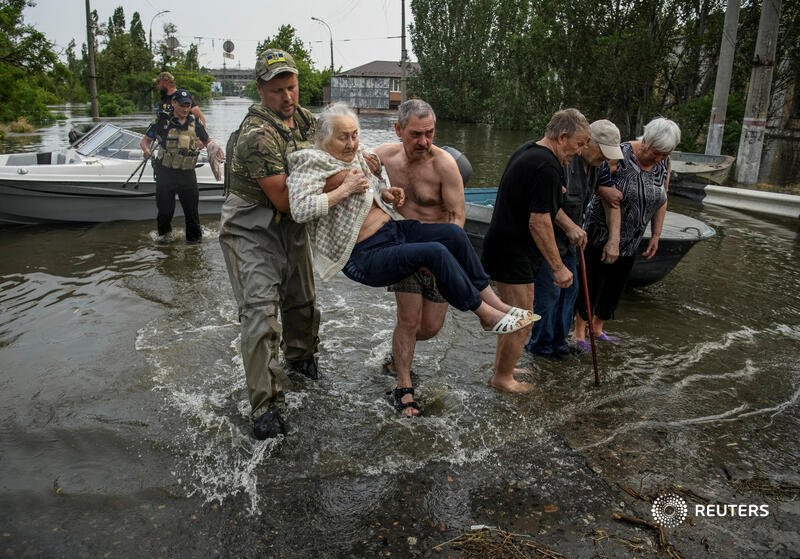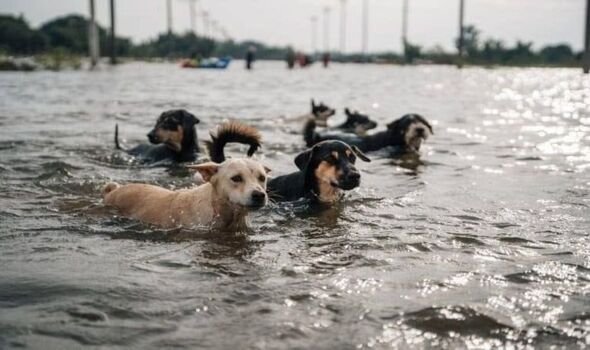How global scientists "neutrally" aid Russia’s agenda
Even botany can become a propaganda tool in the hands of the aggressor. According to Ukrainian scientists, their Western colleagues are becoming increasingly "tired" of the war, even to the point where they are afraid to use or read this word. At least, this is what several cases of Ukrainian scholars having problems with publishing their research in international scientific journals suggest.
It should be taken into account that there are no direct instructions or "wishes" when placing materials. None of the editorial boards of Western journals have clearly expressed a demand to remove the word "war" or replace it with some other word. However, the sequence of events and their logic indicate that the words "war" and "aggressor" are still offensive to certain scientific community members.
The words "war" and "aggressor" are offensive to certain members of the Western scientific community
Texty.org.ua has spoken to scientists with many years of experience in publishing their materials in international scientific journals. The difficulties arose precisely when the editors of these journals were offered materials that clearly referred to Russian aggression. They were pending for months even though articles contained relevant and unique data obtained, particularly in places where the presence could pose a danger to life.
When one of the groups of researchers decided to "cleanse" their materials a bit, a "miracle" happened — they were indeed published by a publishing house that had previously rejected them.
Research about Russian war crime in southern city of Kakhovka
Anna Kuzemko, Doctor of Biological Sciences, is a leading researcher at the Institute of Botany in Ukraine. She has a Hirsch index of 20 in Scopus and 19 in Web of Science. Together with a group of scientists, he hasn't been able to publish an article on the restoration of vegetation at the bottom of the former Kakhovka Reservoir for a year.
I cannot say that foreign scientific journals are simply sabotaging the topic of the war in Ukraine. Yes, last year, we published an article with our British colleagues in Parks magazine that discussed the impact of the war on national parks in Ukraine.
Unfortunately, we also had the opposite experience. We prepared an article about the restoration of vegetation at the bottom of the Kakhovka Reservoir, where Russia committed an environmental disaster by blowing up the dam. We arrived there in June, three weeks after the it was blown up. Then, in October, three and a half months later. We saw how it was all recovering rapidly, used this data for machine learning algorithms, conducted remote sensing of the land, and made a map of habitats for this reservoir. We also provided a list of plant species we saw in June – 11. In October, there were already 70.

Houses are seen underwater in the flooded town of Oleshky, Ukraine, June 10, 2023. Photo: AP

Rescuers evacuate local residents from a flooded area in Kherson, Ukraine, after the Nova Kakhovka dam breached. Photo: Reuters

Animals also have reportedly drowned in the area of Kakhovka dam. Photo: Ministry of Internal Affairs Ukraine)
Everyone began to recommend that we submit this material to such an authoritative journal as Nature. They told us that it was more of a local study and advised us to apply to Scientific Research, which also belongs to the Nature Group. Of course, we went there, and our article was submitted for review. The reviewers wrote back to us saying that we don't have enough field data on the ground and need to collect data from the entire reservoir.
This is despite the fact that in our cover letter, we explained that this is a war zone and it's not easy to get there. It is impossible to drive around the entire reservoir and collect data. This was written both in the article, and the cover letter, so the comment we received was a bit like mockery.
Yes, we had little ground data because we could only get to the reservoir where we had access. And even then, we came under fire. We explained this to the reviewers, but they advised us to examine a larger reservoir area to make the data more reliable. Although it was clear, even from the text of the article, that it was impossible to survey the entire region because of the fighting, most of the territory was inaccessible for research.
Later, we saw in the same publication the published materials of Chinese scientists, where there was no field data at all, and the entire article was based on the analysis of satellite images.
Eventually, we applied to another journal, Biodiversity and Conservation. After waiting for several months, we received a bizarre response. The editor-in-chief wrote that our article was "too ecological" for their journal. They said that it was more about ecology and less about biodiversity, even though we had lists of plants. In addition, I had previously published in this journal, and my articles were of a similar nature.
Therefore, I believe these were just formal replies to not publishing the article.
This is despite the fact that the topic fascinates the scientific community. I was specially invited to a conference in Stockholm to give a presentation on this topic. In Madeira, we had a conference where I spoke and made a report on it. So it's an interesting topic. We were asked to tell us about the Kakhovka reservoir.
In general, we have made presentations on this topic four or five times. We made a presentation for Canadians and the British. So, this topic is interesting to foreign scholars.
The rhetoric at international conferences has also changed a bit. In 2022, everyone told us: "Oh, we support you, go ahead." Now, people generally avoid talking about this topic because they feel uncomfortable. I mean, these are not even editorial boards of scientific journals. They are just scientists in an informal environment.
And Russian scientists have been very active over the past year. They used to sit quietly, and they were neither seen nor heard for two years. Now, they are traveling everywhere to international conferences in huge numbers, promoting Russian narratives with state funds.
It's difficult for us to compete with Russians at international conferences
And it's hard for us to compete with them because if we travel, it's at our own expense, and Ukrainian men aren't allowed to go because of mobilization law. I think that because the Russians are pushing their narratives, these magazines have changed their policies, and people at conferences are afraid to talk about it. At least, that's the impression I get.
I work with vegetation, and people from Russia come to our conference. Last year, there was one Russian, and he was even afraid to say that he was from Russia. But this year, there was a big event, a botanical congress in Madrid.
I didn't attend it, because it's not really my topic. However, 30 scientists were from Russia, and only seven were from Ukraine. And even then, none of the Ukrainians came directly from Ukraine; they lived and worked in Europe. They couldn't come because, first of all, it was expensive. And here, everyone actually travels for their own money. We also don't have programs that would cover participation in conferences like our European colleagues. Plus, men aren't able to.
One Russian, Alexei Seryogin from Moscow University, gave an open lecture on the Flora of Russia project, which included Crimea. He was suggested to be boycotted, but the event took place anyway.
Yes, the international scientific community has been really supportive and encouraging. But when we raise the issue of sanctions against Russian scientists, we hear in response: what can we do? We cannot stop publishing our Russian colleagues because it's a violation of human rights.
We have one international organization of scientists who study vegetation. Once, Ukrainian scientists who were members of this organization refused to publish with Russian scientists. One of my colleagues said that if the co-authors of the article were Russians, she would ask to be excluded from the author's team.
After that, the Russian scientists appealed to the Scientific Ethics Committee of this organization, saying that we were violating their rights and did not want to publish with them. And the committee decided that it would be a violation of human rights if, for example, Russian scientists were excluded from the author's teams.
Similarly, when I raised the question of why the international community constantly talks about the carbon footprint (greenhouse gas emissions) of, for example, airplanes but is silent about the pollution from the war, about similar footprints from hundreds of missiles or Shaheds drones that are constantly flying in Ukraine, I heard the answer: well, we can't influence it.
They are uncomfortable talking about the war as if they are ashamed or just embarrassed
But some people are not ashamed. They openly say that they also feel sorry for the Russians. Some do not believe that Russian scientists can support this aggression.
What's even more unfortunate is that all these things emerged last year. A year ago, two years ago, this couldn't have happened in principle — the Russians were sitting quietly, and everyone said, "We support Ukraine." I cannot say that there is no support now, but it has become more cautious. You can see that it's uncomfortable to talk about this topic, and they try to avoid it by all means, both journal editors and colleagues at conferences.
Support TEXTY.org.ua
TEXTY.ORG.UA is an independent media without intrusive ads and puff pieces. We need your support to continue our work.
They removed the word "war" and printed it
Natalia Ivanova, PhD in geography, is a researcher at the Institute of Hydrobiology of the National Academy of Sciences of Ukraine. She has a Hirsch index of 3 in Scopus, but the authors of the article proposed for publication include authors with Hirsch indexes from 1 to 12, and the corresponding author has 10. She and her colleagues were able to publish an article about the impact of the war on the ecosystem of the Irpin River by removing the word "war" from the title.
"We had a project on the Irpin River basin (Kyiv region), which we did in 2023-2024, investigating the impact of war on aquatic ecosystems. Of course, we set ourselves the goal of publishing the results of the project in reputable scientific journals: Q1, Q2, Scopus.
Literally, all of 2024, we fought to publish our data. A lot of editors said that they supported us and that it was very important to publish data about the war, but then it turned out that either the editors or the reviewers constantly had some questions. Either to the methods, or to the idea itself, or the title, or something else.
At some point, we realized that, probably, the fact that we talked about the war everywhere and used the word "war" was not the least factor here. And some people didn't like it. So, the last time we used the word "war" instead of "anthropogenic impact" in the title, here's a surprise: we were able to publish this article in one of the international scientific journals.
The last time we wrote "anthropogenic impact" instead of "war" in the title and surprise — we were able to publish the article.
In the article itself, we kept mentioning that it was not only about human influence but also about military influence. But in the end, on the contrary, this played into our hands because one of the reviewers even advised us: you have an article about the war, so let's write about the war in the title. And, accordingly, no one from the editorial office could object to us because the reviewer himself advised us.
And since this review is blind, we don't know who the reviewer was.
In general, the whole process of finding a publication that would publish us took a year. For a whole year, from the moment we first submitted, we received various rejections and were reviewed by one journal or another. I have probably never had an article that took so long to get published and was so difficult.
I want to note that this is not our first experience. We have a large team of more than 10 authors. Some of our authors have a very high Hirsch index and extensive experience publishing in various reputable journals.
For example, one of the reviewers wrote that our material is relevant but local, not for the whole world. Someone wrote that this material will be relevant only as long as there is a war.
I also know that many natural history journals often employ Russians. Perhaps they already have EU or Israeli citizenship. Still, if you look at their names and work experience, everything falls into place.
I'm not saying that we have perfect methods or anything else. Yes, perhaps everything is not ideal, but this did not prevent us from being published before. But this time, it was tough.
"Anomalies" instead of destruction and "breakthrough" instead of undermining
Texty.org.ua also decided to analyze the material on the Kakhovka dam, which was published in Nature and mentioned by Anna Kuzemko. This article, "Pre-accident anomalies of the Kakhovka dam revealed by satellite data," was written by a group of scientists from various American universities, some of whom are of Chinese origin.
First of all, this material operates with remote data. It does not contain any data from the field. Interestingly, the editors and reviewers of this reputable journal, for some reason, did not ask the same question as in the case of the Ukrainian material: why don't Chinese-American scientists go to the site of the Kakhovka hydroelectric power plant's destruction to personally investigate the "pre-emergency anomalies"? But this is, as they say, more of a rhetorical question.
A less rhetorical question is how one can describe specific problems related to dam design defects without having the design documentation. Texty.org.ua once talked to Ukrainian engineers involved in designing, constructing, and operating large dams, who clearly stated: "The Kakhovka HPP was designed and built to withstand a nuclear strike from the outside. Therefore, any talk that it could somehow collapse on its own has no basis in fact. This is excluded. Once again, the dam is designed to withstand a nuclear strike." Read more about this here.
And, in fact, a few words about the terminology and language of the article. You will not find any mention of the Russians blowing up the dam. In addition, the authors of the article avoid even the word "undermining" and replace it with "breach". For example, they write: "Before the breach, the supporting structures below the spillway showed signs of damage."
The key event in the chain of events with the Kakhovka reservoir was the dam's explosion, which had catastrophic consequences. For some reason, the article does not analyze this key event. This did not raise any questions from the publication itself or its reviewers, which is strange.
Although the authors seem to avoid any mention of what caused the actual destruction of the dam, it appears that the entire logical chain they have built leads to one conclusion: these "damages" caused the destruction of the Kakhovka hydroelectric power plant or, as they write, a "breakthrough."
"We found that the abnormal operation of the Kakhovka dam began in November 2022 after the destruction of a bridge segment, which led to a constant overflow of water from the end of April 2023 until the breakthrough, contributing to the erosion of the spillway base," the article says. As we can see, there is no mention of explosives planted in the hydroelectric power plant. In the conclusion, the authors of the article manage to avoid this topic altogether.
"There is an urgent public demand: the need for transparent data exchange, especially regarding public water supply infrastructure," the authors write.
And one more small "cherry on top": if you read the article to the end, you will see that not only scholars from American universities with Chinese surnames but also Russians themselves were involved in its preparation. At the end of the article, one can find a thank-you note to a certain Serhiy Kravtsov from the University of Wisconsin-Milwaukee for "helping to find the necessary design parameters of the Kakhovka dam in the Ukrainian and Russian scientific literature."
If you do a little googling about Kravtsov, it becomes clear that he does not lose touch with his historical homeland. In 2021, he attended a conference in Nizhny Novgorod. In 2024, he published a joint monograph with a Russian Academy of Sciences scientist.
As for the scientists who authored the article with Chinese surnames, it is worth recalling that 2017 the PRC adopted the law on the National Intelligence of China. "All organizations and citizens (!)," reads Article 7 of this law," are obliged to support the national intelligence in its efforts, assist it and cooperate with it, and protect the national intelligence secrets they possess.
The question of what priorities Chinese intelligence sets for itself remains open. Still, we can all see the close cooperation between Russia and China today.
Of course, we have no reason to assert that the most authoritative journal in scientific circles, Nature, set out to somehow whitewash the actions of the Russian occupiers. But this article illustrates one crucial and very instructive point: you don't have to be a conscious disseminator of Russian propaganda. It is enough to take a conditional position of "out of politics" and "neutrality," hiding behind alleged scientific impartiality, crossing out everything that, in your opinion, is not related to science, and you very quickly and unnoticed by yourself begin to whitewash the aggressor's actions, actually finding yourself on its side.

